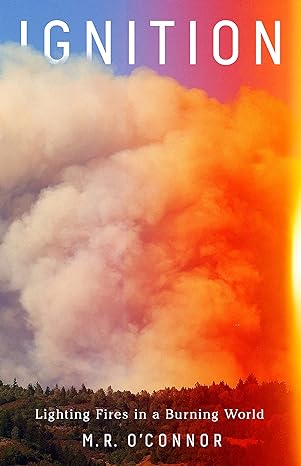Controversial Yet Mostly Solid - But Needs Better Documentation. I first became interested in fire management over a decade ago, when I read an article on wired.com on July 8, 2012, where it made the case that perhaps our modern American efforts to suppress wildfires... had actually led directly to fires becoming ever bigger and more destructive. Over the following 11 yrs, I would both watch the movie Only The Brave, about the Yarnell Hill fire that claimed so many firefighters' lives less than a year after that Wired article came out (which I just realized when researching for this review) and read the book Granite Mountain/ My Lost Brothers (it has used both titles) by Brendan McDonough that the movie was based on. I had also already seen numerous controlled/ prescribed burns as a native of the Southern US, and distinctly remember several over the years in the woods directly behind Lee County (GA) High School - where country singer Luke Bryan, American Idol Season 11 winner Phillip Phillips, and San Francisco Giants great Buster Posey had all attended.
All of that to say that here, O'Connor spends a year actively working with wildland firefighter crews roaming the western US (well, west of the Mississippi - she starts and ends in Nebraska), learning their ways, their thoughts, their struggles. And creating a compelling voice for her effort in this book. She gets the same certifications they do, goes through the same training and meetings, and does everything she is qualified to do per those trainings, and in turn we as readers get a first hand account of what it is really like on said crews. (Which McDonough's book is also great at - just be prepared for some *very* dusty rooms near the end of that tale.)
Through this memoir portion of the book - interwoven with other interviews and research that I'll get to momentarily - she is particularly strong and vivid. Truly, read the book for these passages if for no other reason, as it really brings home what a difficult, demanding, and yes, frustrating job this can be.
Even the research, both interviews and historical, is truly remarkably well done. It is this section in particular (along with, perhaps, some of the commentary from the fire teams she is on) that will likely prove most controversial, as it really drives home the exact point that at least parts of that 2012 Wired article were making - the "suppression only" firefighting tactics we've used against wildfires primarily over only the last century or so really do seem to be causing more harm than they are doing good. And, as it turns out... pretty well everyone knew this before we started doing it. From millennia before Europeans came to the Americas, Native Americans had already been using fire to shape and control their environment in numerous ways, and had already developed tactics that worked *with* nature for the good of all beings. O'Connor's work here makes a particularly strong case that at minimum, these strategies need to be more actively considered. Indeed, much the same way that Gilbert Saul's 2019 book The Geography Of Risk made such a strong case for re-examining coastal development strategies in the face of hurricane damage.
The one weakness here is a quibble, perhaps, but it is consistent with my other non-fiction reviews (and I did already mention it in the title of this review, above), and that is that at just 14% bibliography, it falls a bit short in my own experience - where 20-30% documentation seems to be more standard. Extraordinary claims - and yes, challenging the prevailing "wisdom" of the last century qualifies as such - require extraordinary evidence, and while O'Connor's case through her narrative is stellar, her documentation is sadly quite lacking.
Still, overall truly a fascinating read that deserves far more attention than it may ultimately wind up getting. Very much recommended.
